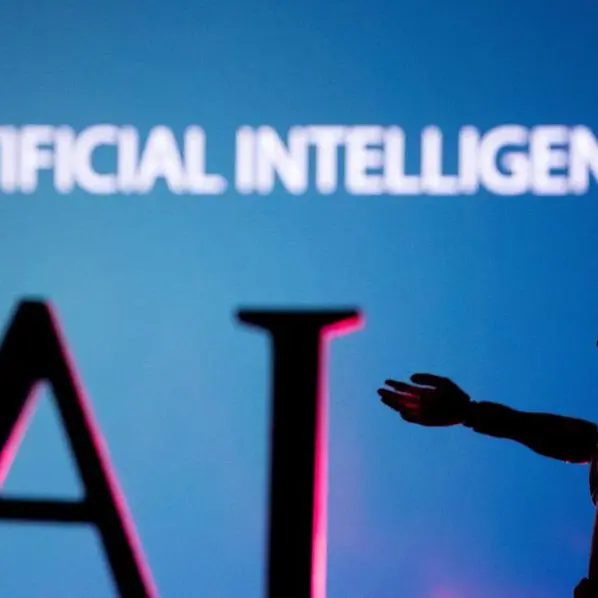PHOTO
Egypt - The Seventh International Conference of the National Authority for Quality Assurance and Accreditation of Education (NAQAAE) opened Sunday in Cairo, with Higher Education and Scientific Research Minister Ayman Ashour inaugurating the event on behalf of Prime Minister Mostafa Madbouly.
The conference, themed “Quality Education in the Age of Artificial Intelligence,” brought together prominent divs in Egyptian education, including Mohamed El-Doweiny, the Azhar’s Deputy Grand Imam, representing the Grand Imam Sheikh Ahmed El-Tayeb; Usama Al-Azhari, Minister of Religious Endowments; Mohamed Gobran, Minister of Labour; Mohamed Abdel Latif, Minister of Education and Technical Education; Nadia Badrawi, President of the Arab Network for Quality Assurance in Higher Education ANQAHE; Michael K. J. Milligan, CEO of ABET, the United States Accreditation Board; Douglas Blackstock, President of ENQA, the European Association for Quality Assurance in Higher Education; and Mohamed Omara, President of the Egyptian Authority for Quality Assurance and Accreditation of Technical Education.
Ashour highlighted the conference’s importance in addressing issues related to education quality in Egypt, the internationalisation of education, and the crucial role of ICT in improving and ensuring quality education. He commended NAQAAE’s efforts in connecting education with artificial intelligence, a move he called vital for reshaping Egypt’s higher education system. He emphasised the need to prioritise technology, innovation, and scientific research, ensuring education meets the demands of the job market and future professions.
“We have 96 colleges for artificial intelligence and computer science, ranging from government, private, and technological universities,” Ashour said, noting the significant increase in programs in these fields in recent years. “There are more than 115 Egyptian universities offering these programs, attracting 110,000 students,” he added, noting a 40% increase from the previous year.
To achieve global standards in education quality, Ashour emphasised the importance of adopting “interdisciplinary specialisations and cross-programmatic programs” to equip graduates with the skills needed for the job market. He also stressed the need to align education quality with NAQAAE standards and expressed gratitude for the Authority’s efforts in accrediting academic programs and institutions in Egyptian universities and private higher institutes.
To further enhance the international accreditation of academic programs, memoranda of understanding were signed in September for the establishment of offices for three international accreditation bodies in Egypt: covering medical sciences, architecture and art, and commerce and economics. This initiative aims to facilitate the international accreditation of relevant programs after their local approval.
Alaa Ashmawy, President of NAQAAE, announced the establishment of two new sectors within the Authority: the Accreditation of Training Institutions and Programs and the National Qualifications Framework. Ashmawy highlighted that while the National Qualifications Framework was launched ten years ago, its implementation is now underway through a platform containing 800 academic qualifications, developed in coordination with relevant entities.
Ashmawy outlined the conference’s primary objective: to facilitate the exchange of ideas, experiences, and diverse practices regarding the application of artificial intelligence in education quality. He emphasised the importance of building trust in educational outputs at the national, regional, and international levels.
He pointed out the conference’s alignment with Africa’s celebration of 2024 as the Year of Education. Participants from across the continent will showcase and discuss avenues for pan-African cooperation in the field of quality assurance and accreditation in education, leveraging existing initiatives like the Harmonization of Quality Assurance Criteria in Africa (HAQAA3), the African Qualifications Framework (ACQF), and the establishment of the Pan-African Quality Assurance Agency (PAQAA).
The conference, held under the patronage of the Prime Minister, brings together nearly 1,000 specialists representing all levels of education in Egypt, along with international experts, representatives of Arab and African quality assurance bodies, and several presidents of Egyptian universities. The National Authority for Quality Assurance of Education and Accreditation aims to attract a substantial number of international organisations and experts to share their knowledge with those involved in the educational process, both in higher education and pre-university education. This initiative aims to drive a qualitative shift in Egyptian education and foster international partnerships in education and professional development.
The conference stems from the need to keep pace with modern technological advancements, recognizing the Authority’s crucial role in ensuring the quality of educational outputs and bolstering confidence in those outputs at both national and international levels. This effort aligns with Egypt’s Vision 2030, positioning it as a key player in the development of education in Egypt and a leader in ensuring its quality.
This year’s conference is organised in collaboration with ABET, the Accreditation Board for Engineering and Technology, NEASC, the New England Association of Schools and Colleges, HAQAA, the Harmonization Initiative for Quality Assurance Criteria in Higher Education in African Countries, ANQAHE, the Arab Network for Quality Assurance in Higher Education, ENQA, the European Association for Quality Assurance in Higher Education, and the Egyptian Knowledge Bank.
In his opening remarks, Mohamed Abdel Latif, Minister of Education and Technical Education, expressed his pleasure at participating in this significant conference.” He emphasised the unprecedented support provided by the political leadership, particularly President Abdel Fattah Al-Sisi, for education and its related issues, placing it as a top priority.
The minister highlighted the Ministry of Education and Technical Education’s tireless efforts to continuously elevate the performance of the education system and enhance the quality of various educational services. This commitment stems from the belief that education is the driving force behind development and the fundamental pillar for nation-building.
He continued by stating that the state has made significant investments over the past decade in reforming and developing education, ensuring that all citizens have access to high-quality education through policy and systemic reforms. He acknowledged the growing societal awareness of the demands of the modern age, particularly as highlighted by the COVID-19 pandemic and subsequent changes in labour markets and lifestyles. These transformations, fueled by technology and advancements, have led to a greater understanding among Egyptian families of the need for education that strengthens their children’s skills and abilities, preparing them for a future characterised by fierce competition across various fields.
The minister emphasised that quality always means striving for excellence, noting that the achievements to date are merely initial steps on the path to achieving educational quality and excellence. He reaffirmed that education quality is a shared responsibility of the student, the educational institution, the community, and the state. Achieving this quality requires collaborative efforts from all involved parties, with each stakeholder playing a defined role and assuming clear responsibility.
The minister expressed his conviction that, through the concerted efforts of all state institutions, they will continue to build upon the foundation laid thus far, nurturing innovative generations capable of achieving development and prosperity while upholding national values and identity.
Minister of Labour Mohamed Gobran began his speech by stating that the conference’s theme is timely, calling for collective efforts to align education and training with the needs of both domestic and international labour markets.
This endeavour will involve collaboration with all stakeholders in development, both domestically and internationally. He expressed his hope for the conference’s success, viewing it as a pivotal intellectual and educational event for the international exchange of best practices aimed at leveraging artificial intelligence to elevate the quality of education and enhance accreditation processes.
This aligns with the strategic objective of attracting a significant number of international organisations and experts to share their expertise with those involved in the educational process, at both the higher education and pre-university levels. The aim is to achieve a qualitative transformation in Egyptian education, facilitate its internationalisation, and strengthen international partnerships, ultimately leading to mutual recognition of academic and training qualifications at a global level. These goals were declared by the National Authority for Quality Assurance of Education and Accreditation.
© 2024 Daily News Egypt. Provided by SyndiGate Media Inc. (Syndigate.info).
Daily News Egypt





















